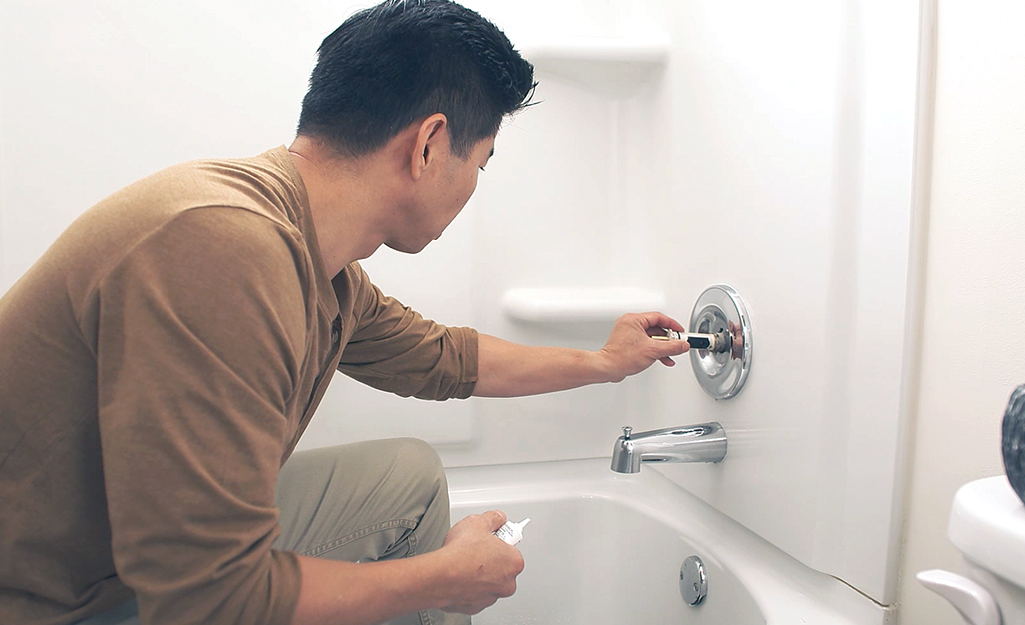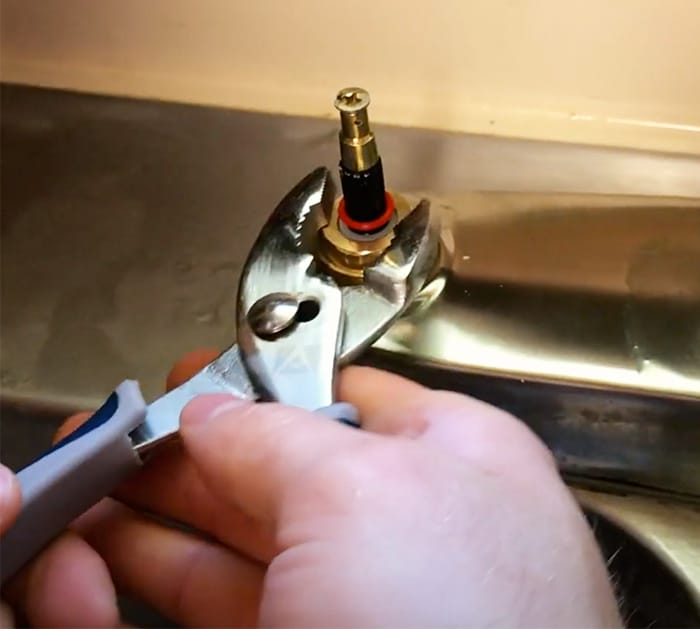Why It's Necessary to Address a Dripping Faucet
Why It's Necessary to Address a Dripping Faucet
Blog Article
Presented here further down you will discover some first-rate information and facts regarding What Causes Leaky Faucets & How To Fix Them.

Trickling faucets may feel like a small hassle, yet their influence exceeds simply the inconvenience of the noise. From drainage to incurring unneeded economic expenses and wellness dangers, ignoring a leaking faucet can bring about various repercussions. In this write-up, we'll explore why it's crucial to address this usual household problem immediately and successfully.
Waste of Water
Environmental Effect
Dripping faucets contribute considerably to water wastage. According to the Environmental Protection Agency (EPA), a solitary tap leaking at one drip per second can throw away more than 3,000 gallons of water annually. This not only stress water sources however additionally influences environments and wildlife dependent on them.
Step-by-Step Overview to Dealing With a Dripping Faucet
Tools Required
Prior to trying to fix a dripping faucet, gather the necessary devices, consisting of an adjustable wrench, screwdrivers, substitute parts (such as washing machines or cartridges), and plumber's tape.
Common Tap Issues and Their Solutions
Recognize the type of faucet and the particular issue triggering the drip. Common problems consist of worn-out washing machines, rusty valve seats, or damaged O-rings. Refer to producer directions or on-line tutorials for detailed assistance on repairs.
Financial Prices
Increased Water Bills
Beyond the environmental impact, trickling taps can pump up water bills considerably. The gathered wastage in time equates into higher utility expenditures, which could have been stayed clear of with timely repairs.
Potential Home Damage
In addition, extended trickling can result in damage to components and surfaces surrounding the tap. Water buildup can trigger discoloration, deterioration, and even structural problems if left ignored, leading to extra repair work expenses.
Wellness Concerns
Mold And Mildew and Mold Growth
The continuous presence of dampness from a leaking tap produces an optimal setting for mold and mold development. These fungis not only jeopardize interior air high quality however likewise posture health and wellness dangers, specifically for individuals with respiratory system conditions or allergies.
Waterborne Conditions
Stagnant water in trickling faucets can become a breeding place for bacteria and other pathogens, boosting the threat of waterborne diseases. Impurities such as Legionella germs grow in stationary water, possibly resulting in significant ailments when ingested or breathed in.
Do it yourself vs. Expert Repair service
Benefits and drawbacks of Do It Yourself Fixing
While some might try to take care of a trickling faucet themselves, DIY repairs come with their own set of challenges. Without correct expertise and devices, do it yourself attempts can aggravate the concern or cause incomplete repair work, lengthening the problem.
Advantages of Working With an Expert Plumber
Employing an expert plumber guarantees that the underlying source of the leaking tap is addressed properly. Plumbers possess the proficiency and equipment to detect and repair tap problems effectively, saving time and reducing the threat of more damages.
Ecological Responsibility
Private Payment to Conservation
Taking obligation for taking care of dripping taps aligns with broader initiatives toward water preservation and ecological sustainability. Every individual's activities jointly make a significant impact on protecting priceless sources.
Lasting Living Practices
By focusing on punctual repairs and taking on water-saving behaviors, individuals contribute to lasting living practices that profit both existing and future generations.
Preventive Measures
Regular Upkeep Tips
To avoid dripping taps, do routine upkeep such as cleaning aerators, evaluating for leaks, and replacing damaged components without delay. In addition, think about installing water-saving tools or upgrading to more reliable components.
Importance of Prompt Repair Works
Addressing leaking taps as quickly as they're discovered prevents further water wastage and possible damages, inevitably saving both water and money in the future.
Impact on Home Worth
Understanding of Well-Maintained Residential Property
Keeping a residential property in good condition, including addressing upkeep concerns like dripping taps, boosts its regarded value and worth among prospective customers or occupants.
Impact on Resale Value
Qualities with well-kept plumbing fixtures, consisting of taps, command greater resale worths in the property market. Resolving trickling taps can add to a favorable impact during home examinations and arrangements.
Conclusion
Addressing a leaking tap exceeds simple benefit; it's an important step toward conserving water, decreasing monetary costs, and securing health and residential or commercial property. Whether through do it yourself repair work or professional help, acting to repair leaking taps is a little yet impactful means to promote liable stewardship of sources and contribute to a healthier, a lot more sustainable future.
How to Fix a Leaky Faucet: Step-by-Step Repair Guide
A leaky faucet may seem like a simple annoyance, but if it's not fixed promptly, that leak could cost hundreds to potentially thousands. From water damage to mold, mildew, and high water bills, even a tiny leak can be catastrophic if left unattended. Damage like this can even affect the overall value of your home, so it's important to take the right approach for leaky faucet repair. You may need the help of a plumber in some cases, but we've got a few tips you can try on how to fix a leaky faucet before calling the pros.
Four Faucet Types
When you're learning how to fix a leaky faucet, the first step is knowing what kind of faucet you're working with! There are four common types.
Cartridge Faucets
Cartridge faucets come in one- or two-handled varieties. In one-handled cartridge faucets, hot and cold water combines in a single cartridge. In the two-handled versions, hot and cold water are controlled separately and mixed in the faucet.
Ball Faucets
Ball faucets have a single lever you push up and down to adjust the pressure and rotate to change the temperature. A slotted metal ball controls the amount of water allowed into the spout.
Compression Washer Faucets
They're the oldest type of faucet, but they're still used in many homes — especially older ones. Compression faucets have two separate handles that, when turned, raise or lower the washer that seals a water valve. This valve stops water from flowing through the faucet when it is turned off.
Disc Faucets
Disc faucets rarely need to be repaired due to their maintenance-free design. The water flow is controlled by two discs — the upper one raises and lowers against a fixed lower disc, creating a watertight seal. If your disc faucet starts leaking, you may need to replace the seals or clean residue buildup from the inlets.
Fixing a Leaky Faucet
Step 1: Turn Off the Water
Whether you're learning how to fix a leaky bathtub faucet or how to fix a leaky kitchen faucet, always turn off the water supply to your working area when you're fixing a leak. The last thing you want is a flood added to your list of things to fix.
Look for the shutoff valves below your sink or around the tub and turn them clockwise to stop the water flow. If your faucet doesn't have shutoff valves, you may need to turn off the water for the whole house. Check to make sure it's off by turning the faucet on. If nothing comes out, you're ready to start the repair.
Step 2: Take Apart the Faucet
How you disassemble your faucet depends on the type of fixture you have. You can use a flathead screwdriver to remove the caps on top of the handle or handles for cartridge and compression faucets. Inside, you should see handle screws. Unscrew these with a screwdriver to remove the handle.
Disc- and ball-style faucets will typically have an inlet screw near the handle, and removing that will reveal the interior of the faucet.
Detach the Valve Stem
For cartridge- and compression-style faucets, you'll see the inner valve stem or cartridge once you remove the faucet handles. If you have a compression faucet, unscrew the brass valve stem. If you have a cartridge faucet, pull out the cartridge. If your cartridge has been in place for a while, it may require some tools or extra force to remove it due to mineral deposits.
Examine and Replace Parts
Once you've removed the parts, check them out to confirm what needs to be replaced. You may see corroded rubber washers, O-rings, stems, or cartridges. On a ball-style faucet, check the seats and springs for damage.
If you need to repair a leaky disc faucet, check the inlet and seals on the lower disc.
Once you determine what parts must be replaced, visit your local hardware store. Bring the damaged parts with you to ensure you can purchase the correct components to replace them.
Clean Valves and Faucet Cavity
If you've removed a stem or cartridge, you may notice mineral buildup in the faucet's threads. Use white vinegar to clean the valve seat by soaking it for a few minutes, then scrub it away with a soft toothbrush and rinse with warm water. You can also clean the interior of the faucet in the same way.
Reassemble the Faucet
Once your faucet is cleaned and the required parts have been replaced, it's time to reassemble it. Put the pieces back together and slowly turn the water supply back on. Doing this slowly is crucial because too much initial water pressure can damage the new hardware you've just installed.
https://homewarranty.firstam.com/blog/how-to-fix-leaky-faucet

We had been brought to that editorial about 4 Common Reasons for a Leaky Faucet through someone on our other web blog. Please pause to promote this entry if you appreciated it. I praise you for your time. Come back soon.
Report this page